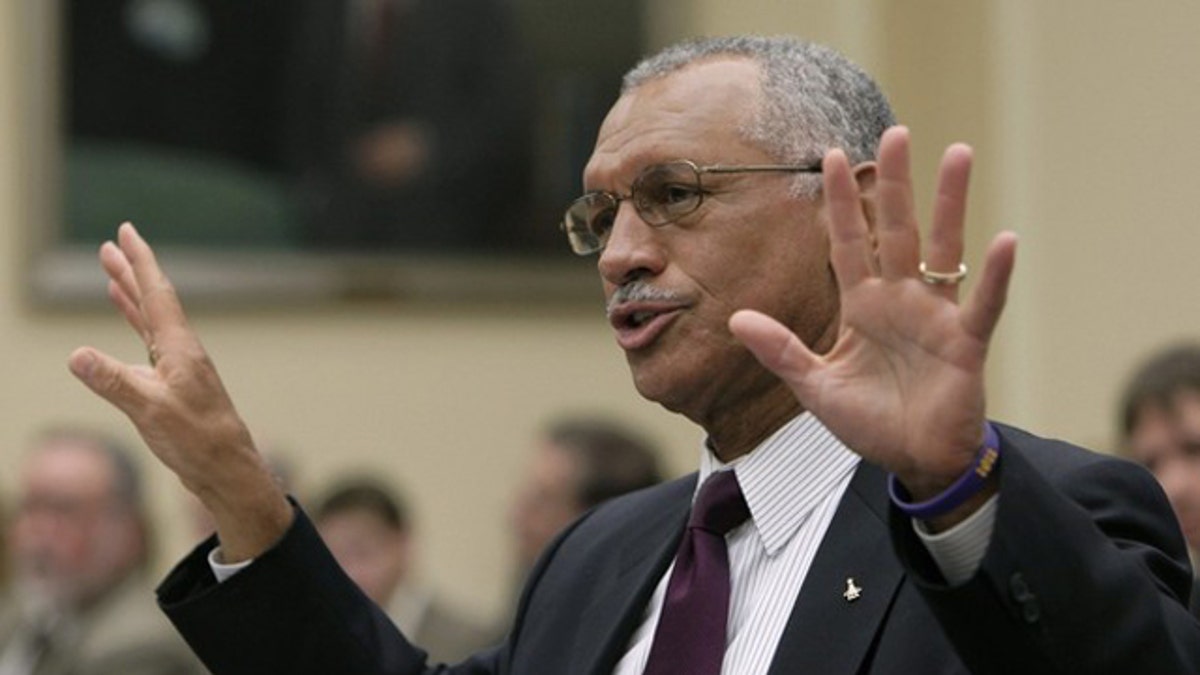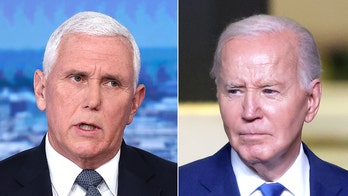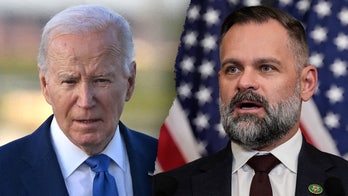
NASA Administrator Charles Bolden testifies before the House Science and Technology committee on Capitol Hill in Washington May 26. (Reuters Photo)
Call it a failure to launch.
The White House is disavowing a plan to have NASA conduct outreach to Muslim countries, but a congressman who talked to NASA Administrator Charles Bolden about that plan last month said the initiative was very real until somebody slammed the brakes on it.
Rep. Pete Olson, ranking Republican on the Space and Aeronautics House Subcommittee, told FoxNews.com that Bolden described the outreach program as part of the administration's space plan during a conversation they had in June.
"He confirmed it to me," Olson said. The Texas Republican said he thinks the program existed until the "uproar" compelled the administration to rethink it.
Though Bolden mentioned the outreach months ago during a speech in February, it drew widespread attention after he described it as a "foremost" priority during an interview with Al Jazeera last month. The administration initially stood by the claim, but White House Press Secretary Robert Gibbs said Monday that Bolden misspoke and that the outreach is "not the task of NASA."
Olson said that to his knowledge no collaboration with Muslim countries actually took place. He said such a collaboration could raise concern about missile technology falling into the wrong hands. But at the same time, he said NASA doesn't have much classified information to share. He described the agency as a cash-strapped arm of the federal government in dire need of some TLC. His main concern with the outreach program was that it would divert badly needed money away from space exploration.
"The last thing we need to be doing now is spending precious space dollars ... on outreach to any religion," he said. "We need to spend money on human space exploration."
John Bolton, former U.S. ambassador to the United Nations under the Bush administration, echoed Bolden's comments to Al Jazeera in saying NASA now needs international help to do what it once did on its own.
For instance, a U.S. manufacturer working on a NASA project reportedly is eyeing a Russian booster for its Taurus II launch vehicle. A Russian rocket booster on Saturday was used to launch a U.S. satellite into orbit for DISH Network.
"That's appalling but that's basically where it is," Bolton said, adding: "I'm not sure at this point ... whether there's much in technology that they have to share."
He agreed with Olson that the outreach program was probably a bona fide initiative before Bolden spoke up about it.
"I think (Bolden) was reflecting exactly what he heard the president say," Bolton said.
Bolden said in the interview that Obama told him before he took the job that he wanted him to do three things: inspire children to learn math and science, expand international relationships and "perhaps foremost, he wanted me to find a way to reach out to the Muslim world and engage much more with dominantly Muslim nations to help them feel good about their historic contribution to science ... and math and engineering."
The comments drew fire from conservatives and former NASA officials already on high alert over the administration's move to cut funding for the NASA Constellation program.
Michael Griffin, NASA administrator under the Bush administration, said NASA was in danger of becoming an "empty shell."
However, he said that while international cooperation is welcome at NASA it's wrong to say the U.S. needs the aid of other countries to travel beyond low-earth orbit.




